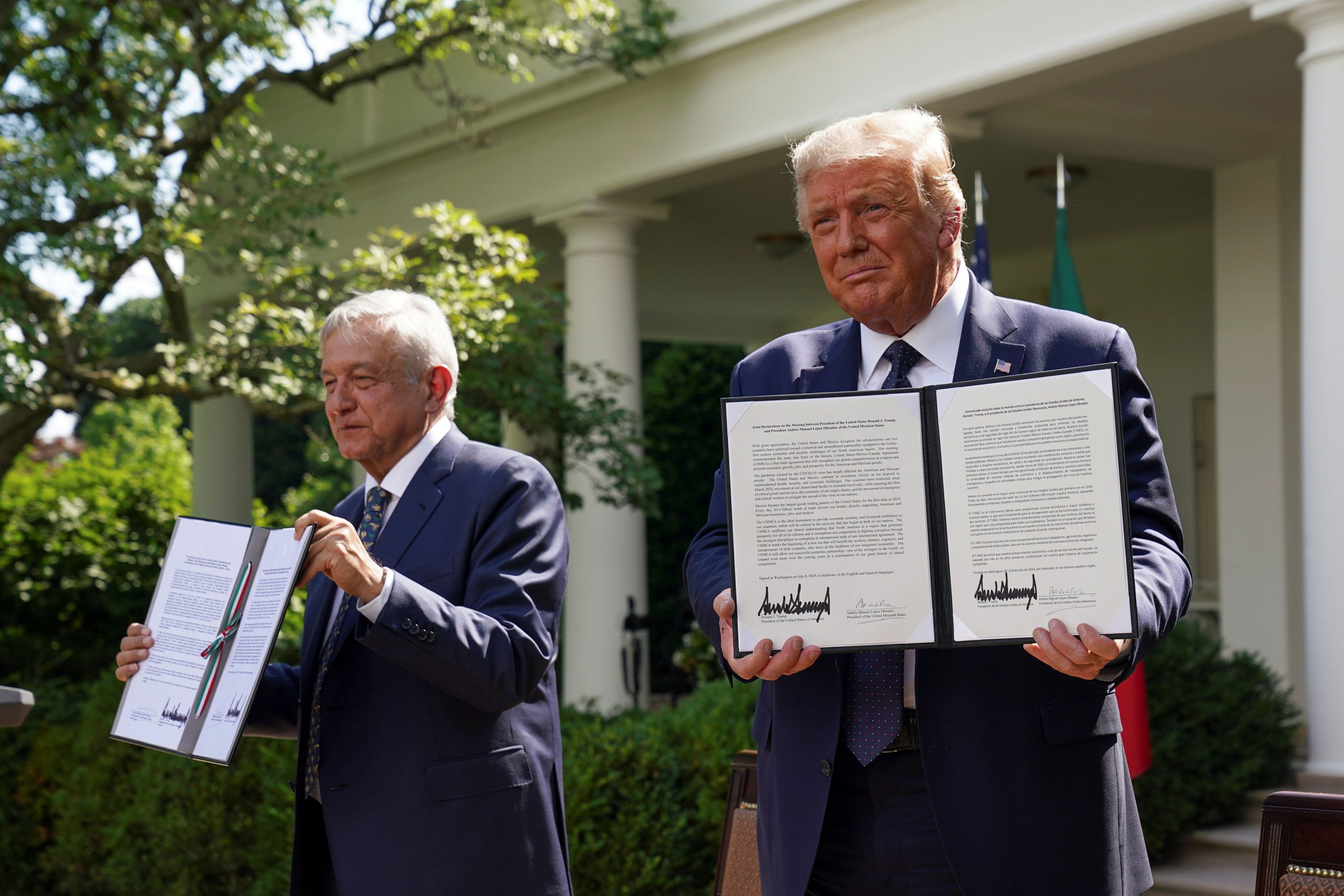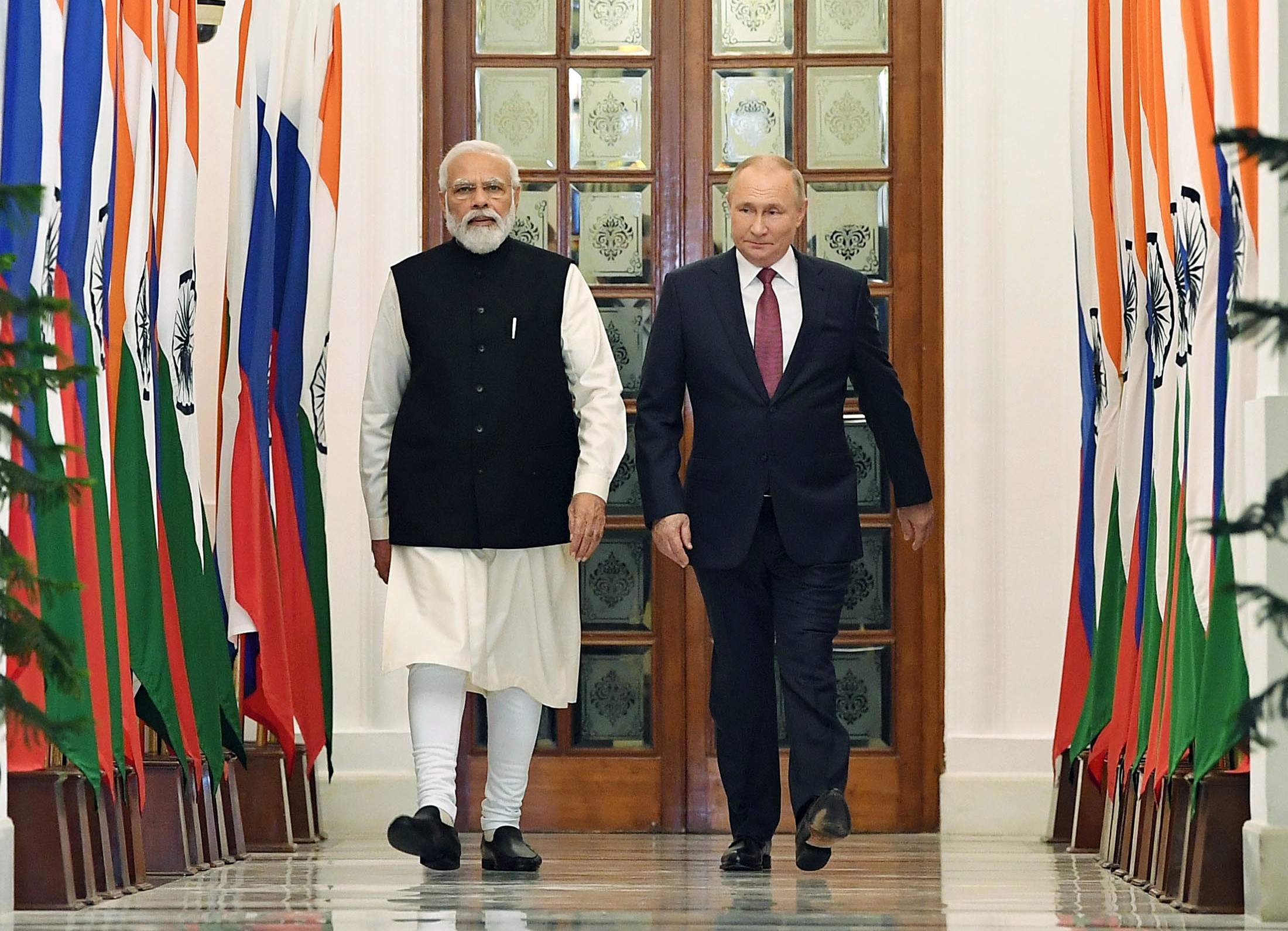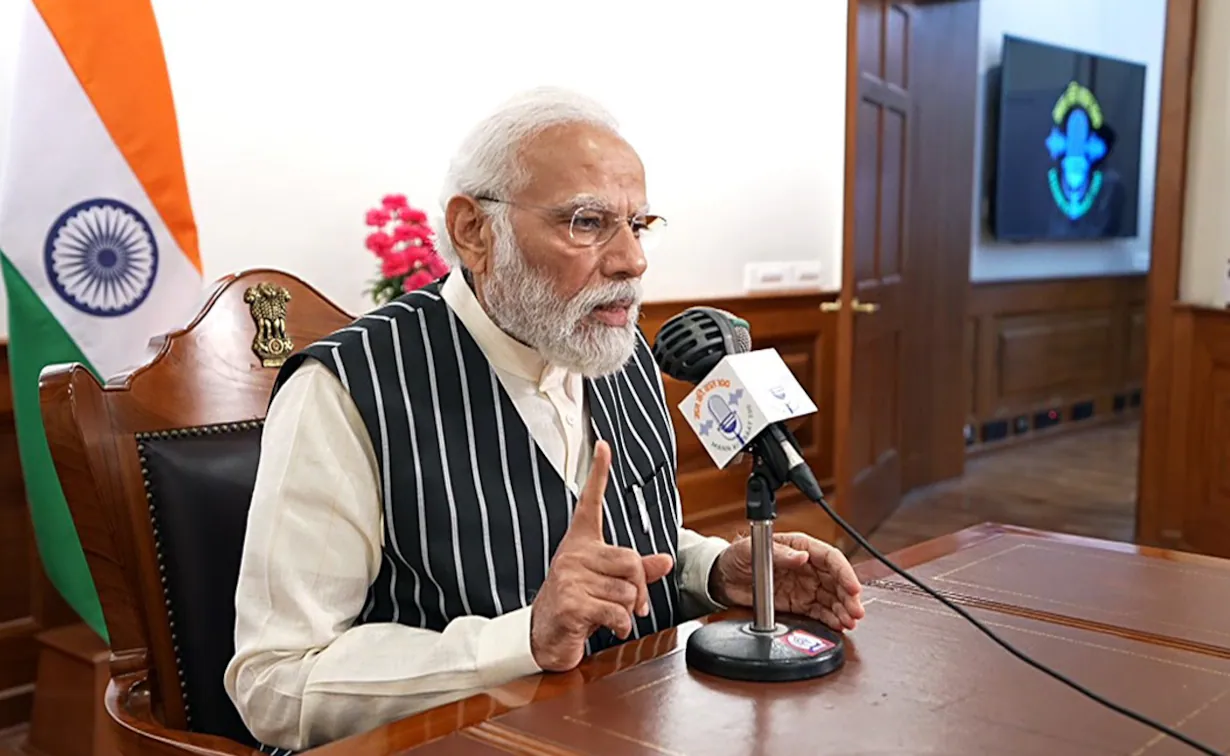The strategic partnership between India and the US has institutionalized over the past decade to the extent that new incumbents at the White House were expected only to perfect the bonding.
A. Vinod Kumar
For all his demeanor as a political and diplomatic iconoclast, Donald Trump, the outgoing US President, will be remitting office with an enviable record of foreign policy achievements, many of which could cast a shadow on the Nobel halo his immediate predecessor attained for a mere pronouncement of vision. Unlike Barack Obama, who had a tough foreign policy grind and many setbacks during his eight years in office, Trump, in contrast, made new inroads in a short period though also disrupting many existing equations.
It is in this backdrop of a robust legacy that President-elect Joseph R. Biden Jr. would be expected to realign, or from the perspective of Democrats, salvage the US grand strategy from what they perceive as the damage wrought by Trump in four years. While some observers feel Biden could stick to template Democrat dogmas including picking up from where the Obama Administration left off, the general expectation is of a mix of continuity and change in US foreign policy. Though “a fundamentally different course” has been guaranteed by Biden during his campaign, it remains to be seen whether re-alignments could be that easy in areas where Trump has caused major disruptions — be it the Iran nuclear deal or frosty US-China relations.
‘Why America must lead again’
The key slogan for Biden’s campaign is his call for restoring America’s “dignified and respected leadership both at home and on the world stage.” He has argued that security, prosperity and values of the US could only be advanced by renewing American democracy and its alliances, and by being at “the head of the table leading the world to address global challenges.” Democracy, Biden contended, is the “wellspring of our power” and “amplified our leadership,” and that the ability to be a force for the world, starts at home.
While various steps to ‘reinforce democracy’ and ‘restore moral leadership’ have been listed in the campaign documents, Biden’s major initiative towards these goals is of hosting a Global Summit for Democracy in his first year. This summit would bring together the world’s democracies to address threats to ‘common values’, namely: (a) fighting corruption, (b) defending against authoritarianism (including election security) and (c) advancing human rights. Furthermore, Biden talks of the growing strength of autocratic powers and their efforts to divide and manipulate democracies, and why democracies must work together to confront the rise of populists, nationalists and demagogues – a unique variety that might include some friends of the US as well.
Although it is clear that promoting democracy and restoring US clout would form the centerpiece of Biden’s globalism, this policy activism is likely to rub against transactional relationships that Trump pursued, be it with the House of Saud or Kim Jong-Un. Though Hong Kong protestors might have cheered Trump’s supportive gestures, Biden, despite having a measured approach towards China, is likely to be on the side of the democratic movement even as he highlights human rights violations in Xinjiang, on which Trump was sloppy. In fact, Biden has already backed democratic protests in Nigeria during his campaign thus making clear his intent Furthermore, Biden has called on technology corporations and social media giants to preserve “open, democratic societies” and protect free speech, thus unveiling a vision for the times when social media has been manipulated into a medium for the subversion of democratic processes. Referring specifically to “Russian attacks on Western democracies” and “facilitating repression in China and elsewhere,” Biden has reminded the tech giants that while benefiting from the fruits of democracies, they should not empower surveillance states, which spread hate and spur violence.
Biden’s Grand Strategy
Biden’s conception of grand strategy, thus, is a comprehensive vision that aims at systemic change, driven by the belief that the foundation for moral leadership of the world has to be prepared at home, including by correcting the principles and structures that have gone awry in the past few years. Besides tailor-made domestic measures towards this end with a focus on migrants and asylum seekers, Biden promises to pursue a “foreign policy for the middle class.”
Beyond doubt, Joe Biden’s primary strategic mission will be to ensure a return to the pre-Trump era in which Washington spearheaded the rules-based global order as the reigning hegemon. Unlike Trump, who wavered on his conception of what ‘Make America Great Again’ meant for Washington’s global roles, Biden is amply clear that American leadership is crucial to addressing all major global challenges by restoring its credibility and influence. Contrasting Trump’s vilification of traditional allies like NATO, Biden seeks to restore the tradition of working closely with allies and other democracies to deal with current threats. These are identified as mass migration, climate change, the disruptive impact of new technologies, a renewed threat of nuclear war, transnational terrorism, cyber warfare, and also great power aggression.
Accordingly, he assures the creation of millions of jobs in the process of rebuilding the crumbling American infrastructure, the revival of the auto industry when shifting to an electric vehicle eco-system, setting up a new zero-emissions public transportation infrastructure described as the ‘second railroad revolution’, achieving a carbon pollution-free power sector by 2035 through greater investments in next-generation renewable hydrogen and advanced nuclear technologies, as also major investments in energy-efficient buildings and affordable housing for over 5-6 million people.
While the progressives termed it as a blueprint that will wean the US from fossil fuels and curb greenhouse emissions, the Republicans dismissed the proposals as a socialist plot. Nonetheless, the optimism over Biden’s plan is his declared intention to re-join the Paris Accord on Day one in office, and also convene a Global Climate Summit, to restore the US leadership in this endeavor.
Foremost on Biden’s non-proliferation agenda will be the revival of the Iran nuclear deal or the Joint Comprehensive Plan of Action (JCPOA), a key achievement for the Obama administration which Trump derailed. Biden’s campaign documents, while blaming Trump for prompting Iran to restart its nuclear program and bringing the region to the cusp of another war, proclaim that “if Tehran returns to compliance with the deal, President Biden would re-enter the agreement using hard-nosed diplomacy and extend it.” Biden also promises action on Iran’s other destabilizing activities. This would be easier said than done considering that Iran has by now considerably advanced in uranium enrichment and has revived activity in facilities that were restricted by the agreement.
Biden and India

The strategic partnership between the world’s two largest democracies, India and the US, has institutionalized over the past decade to the extent that new incumbents at the White House were expected only to perfect the bonding, irrespective of any number of irritants that may remain as policy residue. The certitude of the institutionalized character of this relationship is most embodied by the manner in which successive political leaderships in both New Delhi and Washington – be it Prime Ministers Manmohan Singh or Narendra Modi on the Indian side or Presidents Barack Obama or Donald Trump on the US Side – have sustained and advanced the momentum established by their predecessors. Events like the ‘Howdy Modi’ in the US and ‘Namaste Trump’ in Ahmedabad embody the personal equations that have also been built by the political leaderships on both sides.
That such high camaraderie will continue into the Biden administration is evident in the ease with which Prime Minister Modi established early affinities with the President-elect. With Antony Blinken slated to become Biden’s Secretary of State, there is optimism that India-US relations are set to go notches higher, going by Blinken’s record of supporting the India-US nuclear deal and his recent statement that “strengthening and deepening the relationship with India is going to be a very high priority.”
Notwithstanding these factors, a highlight of the Biden Administration’s proposed agenda is the significance given to Indian-Americans in the scheme of things. Like in the case of the African, Central American and Arab American communities, Biden promises a rich initiative to serve the interests of Indian Americans — probably the first such targeted plan for ethnic minorities. Starting with the promise to reform the immigration system, Biden talks about steps to stem racial hate and religious bigotry targeting Indian communities, restore the ‘American dream’ for immigrants by particularly promoting measures for small-time Indian entrepreneurs, providing a roadmap of citizenship for the undocumented 5 lakh Indians, clear the family visa backlog and increase visas for work-based immigration for Indian professionals.
Besides proposals like visas for religious workers, honouring the diversity and contributions of Indian Americans and eliminating language barriers for the community, Biden wraps up the agenda by promising to support the India-US partnership, thus conjoining the relationship with India as integral to the assimilation of Indian Americans in the nation’s politico-economic and socio-cultural matrix.
A. Vinod Kumar is Associate
Fellow at Manohar Parrikar Institute for Defence Studies and Analyses, New Delhi.
Views expressed are of
the author and do not necessarily reflect the views of the Manohar Parrikar IDSA or of the Government of India.
This is the abridged version
of the article which appeared first in the Comment section of the website (www.idsa.in) of Manohar Parrikar Institute for Defense Studies and Analyses, New Delhi on December 1, 2020.


























